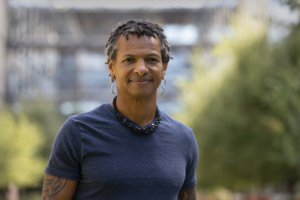October is Breast Cancer Awareness and Health Literacy Month. Researchers at The University of Texas at Austin are available to discuss their research on detecting and coping with breast cancer, as well as research that may improve health literacy and enable people to make informed decisions about their overall health and help lower health care costs.
African Americans and Breast Cancer Screening
Mary Lou Adams, associate professor of nursing
512-471-9091
mladams@mail.utexas.edu
Public Affairs contact: Tim Green, 512-475-6596, timgreen@mail.utexas.edu
Adams focuses on increasing African American women’s participation in breast cancer screenings. As project director of a Texas Cancer Council initiative, she developed a community-based outreach program to encourage minority women’s participation in early detection and follow-up services.
Mammary Gland Development and Breast Cancer
Carla Van Den Berg, associate professor of pharmacy
512-471-5199
cvandenberg@mail.utexas.edu
Public Affairs contact: Tim Green, 512-475-6596, timgreen@mail.utexas.edu
Van Den Berg studies the processes of normal mammary gland development and breast cancer. Her breast cancer studies focus on several aspects of breast cancer development and metastasis. Read an explanation of Van Den Berg’s research.
Communicating about Cancer with Family and Others
Erin Donovan-Kicken, assistant professor of communication studies
edk@mail.utexas.edu
512-232-7723
Public Affairs contact: Erin Geisler, 512-475-8071, erin.geisler@austin.utexas.edu
Donovan-Kicken researches how people use communication strategies to cope with cancer, specifically the management of sensitive information and difficult conversations with loved ones and professionals. She also has expertise in processes of disclosure, topic avoidance, uncertainty management, social support and persuasion in a variety of health contexts.
How do People Seek Information about Cancer and Cancer Prevention?
LeeAnn Kahlor, associate professor of advertising
kahlor@mail.utexas.edu
512-471-8498
Public Affairs contact: Erin Geisler, 512-475-8071, erin.geisler@austin.utexas.edu
Kahlor’s primary research interest is in health and environmental risk communication with an emphasis on information seeking and processing. Her most recent projects focus on cancer risk information seeking and general health risk information seeking, among other topics.
Influencing Low-Health Literate Audiences
Michael Mackert, assistant professor of advertising
Mackert@mail.utexas.edu
512-471-8558
Public Affairs contact: Erin Geisler, 512-475-8071, erin.geisler@austin.utexas.edu
Mackert researches how low health-literate audiences find, process and then act on health information. He is currently investigating how to design health promotion campaigns, such as for folic acid use and hand washing, to reach these audiences. Read more about Mackert’s research online.
Media and Health Care
Brad Love, assistant professor of advertising
lovebrad@mail.utexas.edu
512-471-3482
Public Affairs contact: Erin Geisler, 512-475-8071, erin.geisler@austin.utexas.edu
Love studies how media coverage and use of social media influence medical care, particularly within the cancer community. For example, he’s currently studying why young adults use online support communities and how that affects their health and quality of life outcomes. Similarly, he is looking at how people use Twitter to spread health information and what kind of information they choose to spread.
Pat Stout, professor of advertising
pstout@mail.utexas.edu
512-471-8152
Public Affairs contact: Erin Geisler, 512-475-8071, erin.geisler@austin.utexas.edu
Stout’s research focuses on viewer response to persuasive messages and advertising, with particular attention to individuals’ emotional response to advertising and health-promotion messages. She is interested in the role of social marketing and the effectiveness of health communication.



